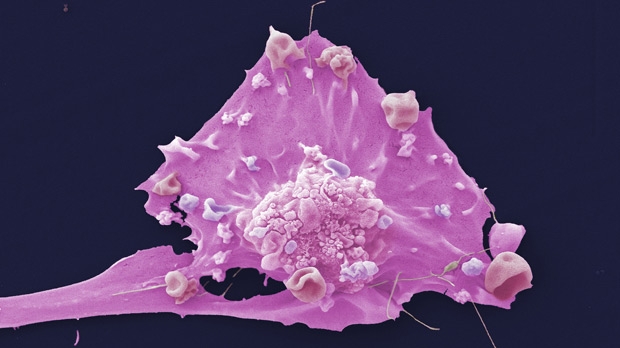Researchers from ECU’s School of Medical and Health Sciences analysed data from the Danish Diet, Cancer and Health cohort that assessed the diets of 53,048 Danes over 23 years. They found that people who habitually consumed moderate to high amounts of foods rich in flavonoids, compounds found in plant-based foods…...
The Lancet: A link between different forms of menopausal hormone therapy and breast cancer
An international collaboration, using data from more than 100,000 women with breast cancer from 58 epidemiological studies worldwide, has found that using menopausal hormone therapy (MHT) is associated with an increased risk of breast cancer, and that some increased risk persists for more than a decade after use stops. The…...
Nerves could be key to pancreatic cancer spread
A couple of molecules that nerve cells use to grow during development could help explain why the most common pancreatic cancers are so difficult to contain and for patients to survive, a new study led by Johns Hopkins Kimmel Cancer Center researchers suggests. The findings could lead to new ways to…...
WPI researchers create cancer-detecting chip
A mechanical engineering professor at Worcester Polytechnic Institute and his research team believe they have discovered a revolutionary new way to detect cancer. Balaji Panchapakesan said their liquid biopsy chip has been 100% effective in finding breast or lung cancer in more than a dozen patients in early tests, and…...
Prostate cancer MRI scans: is the NHS ready?
All men with suspected prostate cancer should be offered a specialist MRI scan when they’re referred to the hospital in England, before a biopsy. And it’s a decision that prostate cancer expert Professor Mark Emberton is extremely happy about. Read the original article at: https://scienceblog.cancerresearchuk.org/2019/05/09/prostate-cancer-mri-scans-is-the-nhs-ready/...
News digest – NHS staff shortages, HPV vaccine in Rwanda, prostate cancer guidelines and sunscreen chemicals
Read about this week News Digest’s cancer research breakthrough headlines including National screening programs, a new drug for aggressive childhood brain cancer, HPV vaccination in Rwanda, and more. Original article at: https://scienceblog.cancerresearchuk.org/2019/05/11/news-digest-nhs-staff-shortages-hpv-vaccine-in-rwanda-prostate-cancer-guidelines-and-sunscreen-chemicals/...
£6 million fund to boost number of Scots doctors involved in cancer research
Scottish science is set to receive a multimillion-pound boost to transform training for doctors who undertake cancer research – and help retain women scientists in the field. “If we’re to bring forward the day when all cancers are cured, we need all our doctors and scientists to be able to reach…...
Less chemotherapy better for older or frail patients with advanced stomach and oesophageal cancers
Less chemotherapy is as effective at controlling disease for elderly or frail patients with advanced cancer of the stomach or oesophagus (food pipe), and leads to fewer side effects such as diarrhoea and lethargy. These are the results of a Cancer Research UK funded study, presented prior to the ASCO…...
Transgender women have increased risk of breast cancer compared to cisgender men
Transgender women undergoing hormone treatment have an increased risk of breast cancer compared to cisgender men, new research suggests. According to a study carried out by researchers from the University Medical Centre in Amsterdam, trans women (individuals assigned male sex at birth who identify as women) are around 47 times more likely…...
Skin and breast cancer drugs approved for NHS use in Scotland
Two cancer drugs have been approved for patients on the NHS in Scotland. An immunotherapy for some people with advanced skin cancer and a targeted drug for some patients with breast cancer got the green light this week. Pembrolizumab (Keytruda) will now be an option for patients whose melanoma has spread to the…...





